
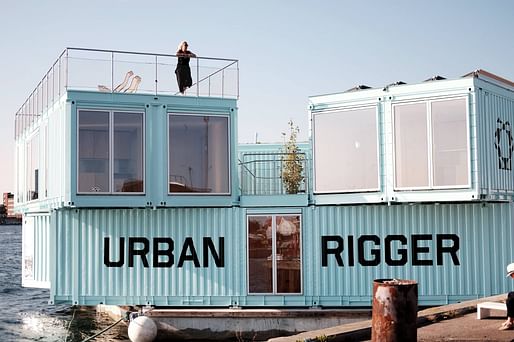
Every year, the prestigious Buckminster Fuller Challenge attracts hundreds of competitive initiatives by multi-disciplinary design teams from across the globe, in response to various social and environmental issues. Most recently, the Buckminster Fuller Institute revealed some of the six dozen projects that were selected for the Challenge's Catalyst Program, which provides opportunities like additional funding, pro-bono legal services, fast-tracked access to accelerator programs, mentorship opportunities, and more.
Although these won't go on to compete as semi-finalists (which are expected to be announced soon), these projects were selected as notable representations that fulfill the seven Fuller Challenge criteria: visionary, anticipatory, comprehensive, ecologically responsible, feasible, verifiable, and replicable. .
Read about some of the Catalyst Program initiatives that the BFI has revealed so far. More will be announced in the coming months.
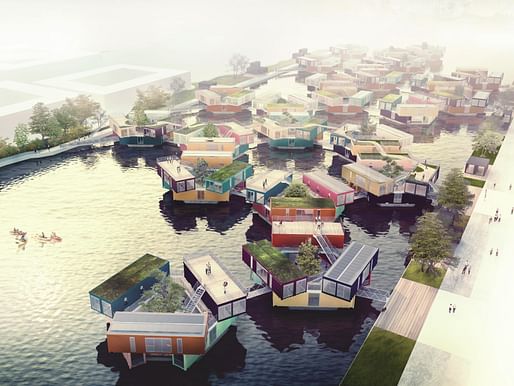
ARCHITECTURE - Urban Rigger: Bjarke Ingels Group's Urban Rigger is “a prototype for floating, carbon neutral housing designed for mass production, with the goal of creating an affordable alternative to rising housing prices in major cities. At a quarter of the cost of traditional student housing, Urban Rigger uses a hexagonal configuration of nine up-cycled shipping containers to offer twelve individual residences, storage and laundry rooms, a kayak landing, bathing platform, courtyards, and roof terraces. Multiple units can be configured to fit any port in blocks of varying size allowing for flexibility. Built on a floating base, Urban Rigger would be able to sail apartments as needed to port cities.”
URBAN DESIGN - Fruit Futures will “develop cooperative landscapes to engage citizen scientists to reboot soil, study microclimates, and cultivate small fruits. Fruit Future’s Community Lab Orchard emphasizes experiential learning and curiosity. Fruit Future’s ‘Seven Year Lot’ teaches innovative and traditional growing techniques for native and cultivated fruits. Its Climate Corridor focuses on temperature-sensitive native fruits, a linear planting method that transforms streetscapes into microclimates. Its most technical approach, the Remediation Arboretum is a new kind of public greenspace and demonstration landscape, with the purpose of investigating how fruiting trees and shrubs can revitalize urban soils”
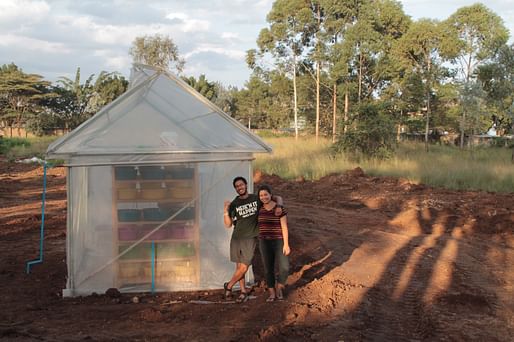
FOOD SYSTEMS - Kulisha: “Kulisha works with food and beverage companies to convert organic waste byproducts into protein made from insects for use in animal feeds. Kulisha has developed a biological system that uses microbial communities and black-soldier fly larvae to metabolize waste, cutting disposal costs and offering a sustainable alternative to fishmeal.”
EDUCATION - Maya Universe Academy: “Nepal's first and only system of free private schools that provides quality education to marginalized and cash-poor communities. At Maya’s free private schools, parents pay with time instead of money. They contribute labor for classroom construction, to support daily school activities, to maintain the school’s farms, and for income-generating small businesses that help fund the school. By engaging parents and students in entrepreneurial ventures such as chicken-raising and organic herb gardening, Maya works to create an entrepreneurial community that thrives on sustainable, local agriculture.”
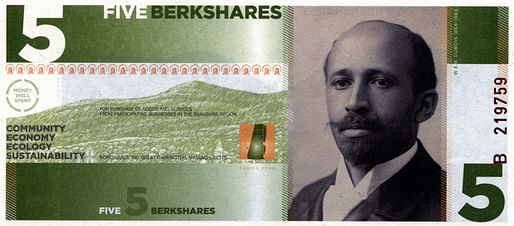
ECONOMY - BerkShares: “Developed by the Schumacher Center for a New Economics, BerkShares is an experiment in re-localization and economic democracy in western Massachusetts. BerkShares is a currency that engages citizens in supporting and developing local businesses to meet local needs, thereby decreasing reliance on fossil fuel and imports from afar. First issued in 2006, the currency is directed by BerkShares, Inc, a place-based, non-profit, democratically-structured organization. The currency’s sophisticated design celebrates the region’s history, geography, culture, and values, while a 95-cents-to-1 BerkShare exchange rate encourages citizens to spend their money with more than 400 locally-owned businesses that participate in the program.”
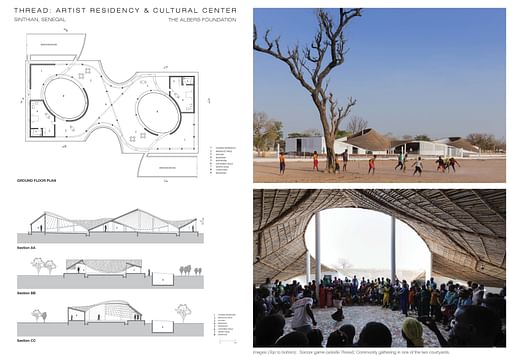
SOCIOCULTURAL SUSTAINABILITY - Thread: “In Eastern Senegal, Thread acts as an agricultural hub for the rural village of Sinthian and its surrounding villages, providing training, fertile land, and a meeting place for social organizations of the local community. Concurrently, Thread is a socio-cultural center that houses artists’ dwellings and studio space for local and international artists’ residencies. The innovative roof design collects and retains rainwater, creating a viable source for the majority of these new agricultural projects during the eight-month dry season.”
AGRICULTURE - The Toothpick Project: “This project addresses a critical problem: 40 million African smallholder farmers lose from 20-80 percent of their maize, sorghum, millet, and rice crops to Striga, a parasitic weed. Striga’s origin in Africa is unclear, but its devastation on smallholder farms has increased for the last seven decades. In Kenya, The Toothpick Project has designed and deployed an ecologically-sound solution: a biocontrol technology using a fungus substance, technically an “inoculum,” embedded onto a toothpick that kills Striga and improves crop yield by averages of more than 50%. With the large majority of Kenya maize farmers being women, they have designed a delivery system that uses women’s knowledge of food preparation to prepare the inoculum substrate.”
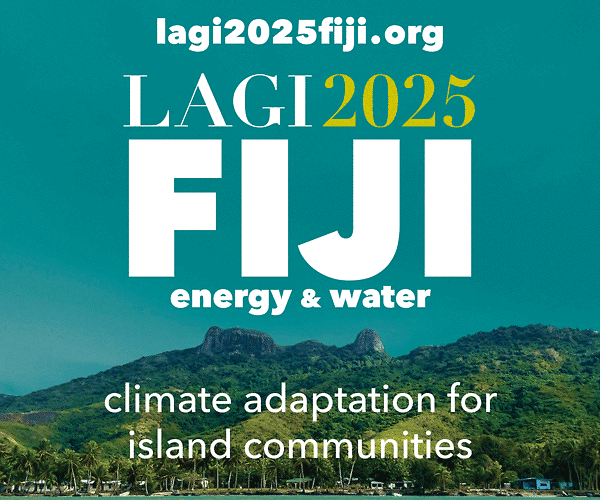
Land Art Generator Initiative 2025 Fiji: Climate Resilience for Island Communities
Register/Submit by Mon, May 5, 2025
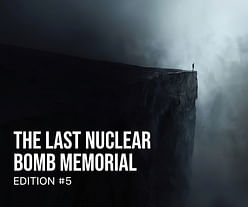
The Last Nuclear Bomb Memorial / Edition #5
Register by Thu, Jan 16, 2025
Submit by Wed, Feb 19, 2025
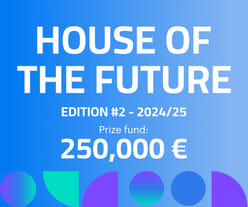
250,000 € Prize / HOUSE OF THE FUTURE 2024/25
Register by Wed, Apr 30, 2025
Submit by Mon, Jun 2, 2025
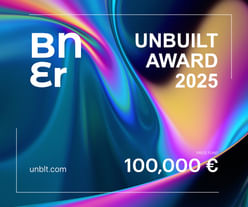
100,000 € Prize / Buildner's Unbuilt Award 2025
Register by Thu, Oct 30, 2025
Submit by Thu, Nov 20, 2025
1 Comment
"Urban Rigger would be able to sail apartments as needed to port cities.”
Bucky Fuller would float them in on a blimp made by Igor Pasternak, the blimp billionaire .